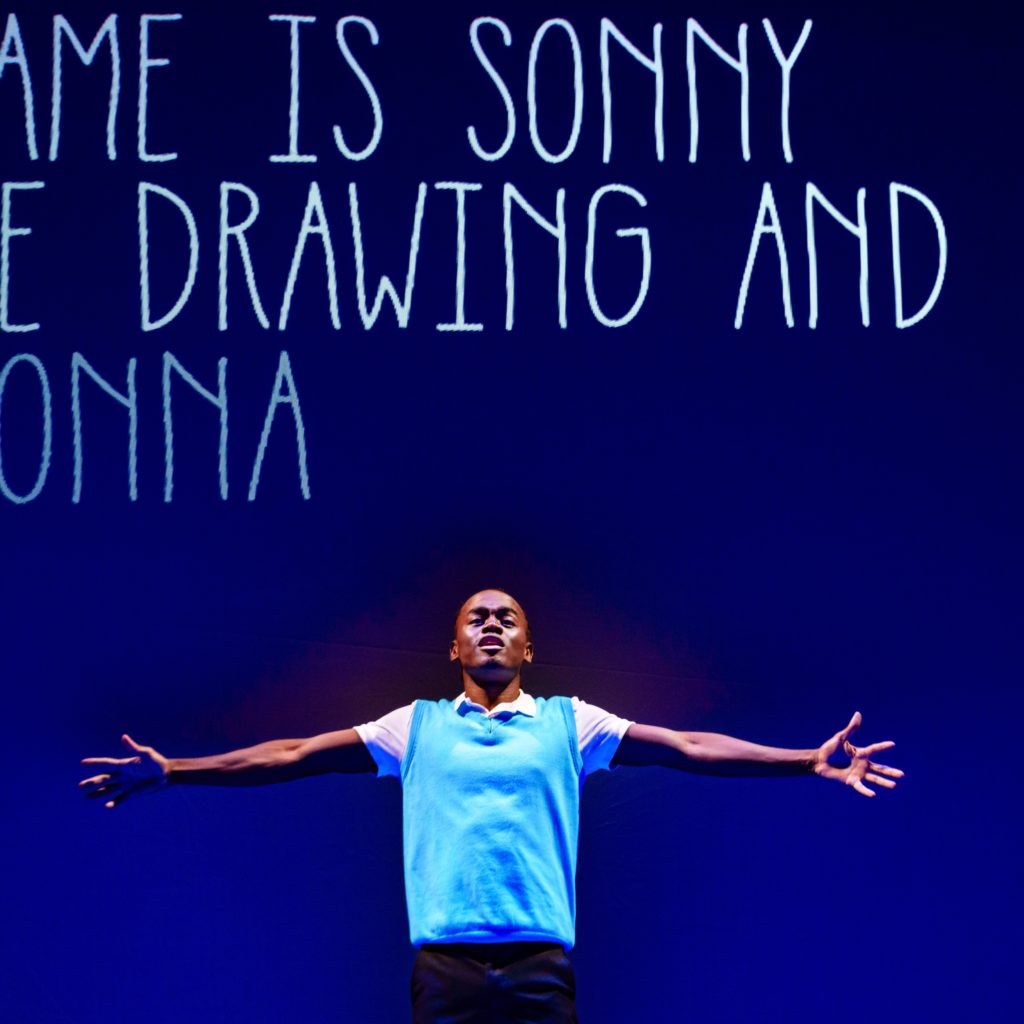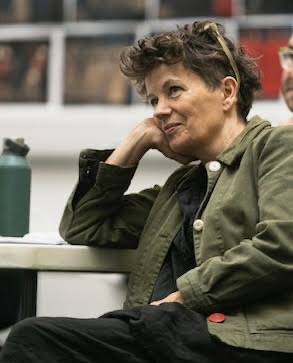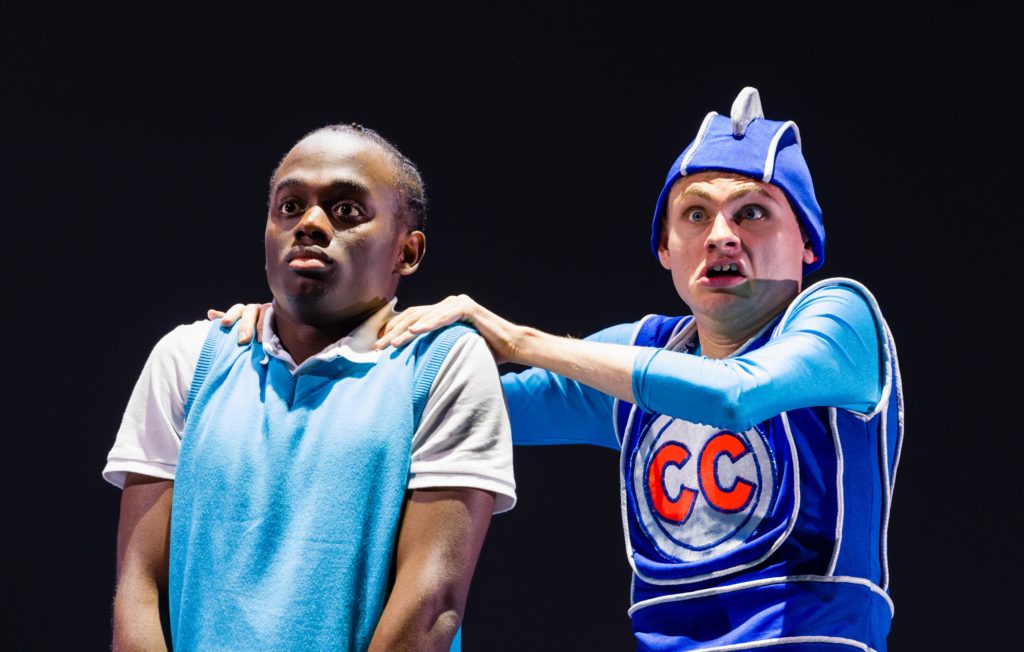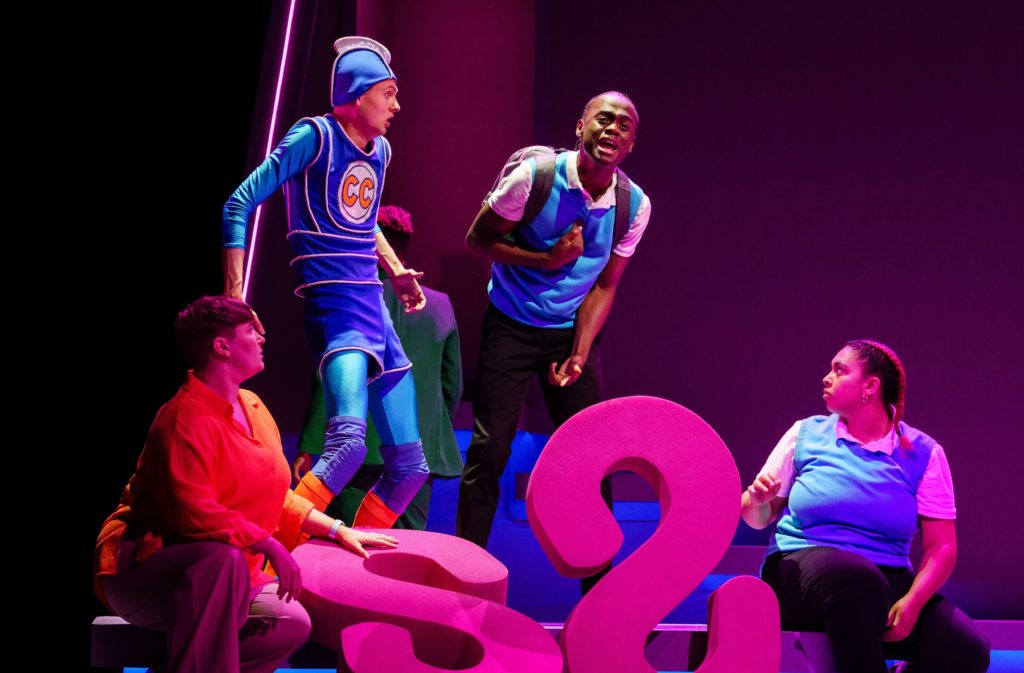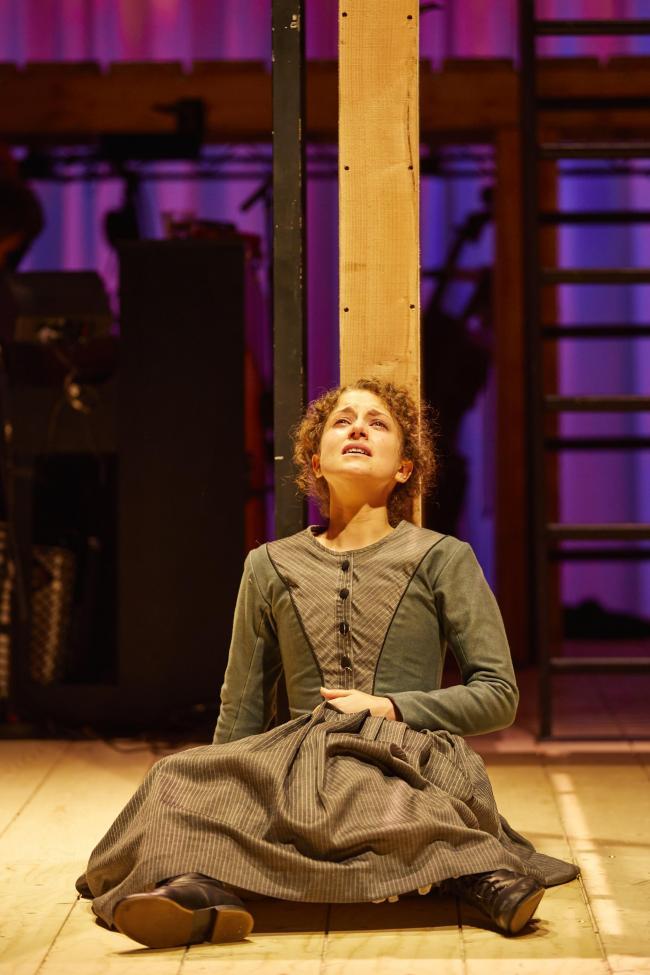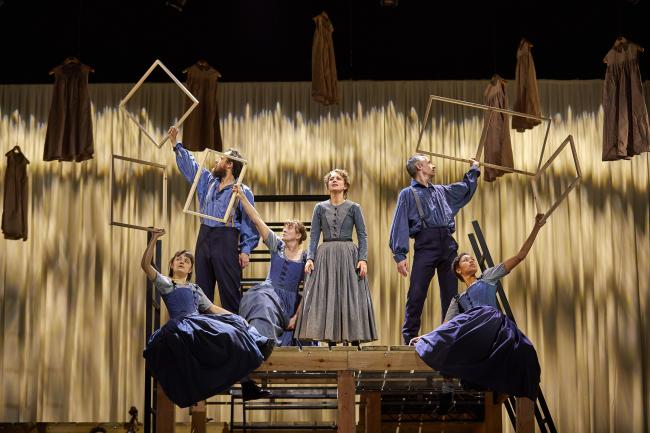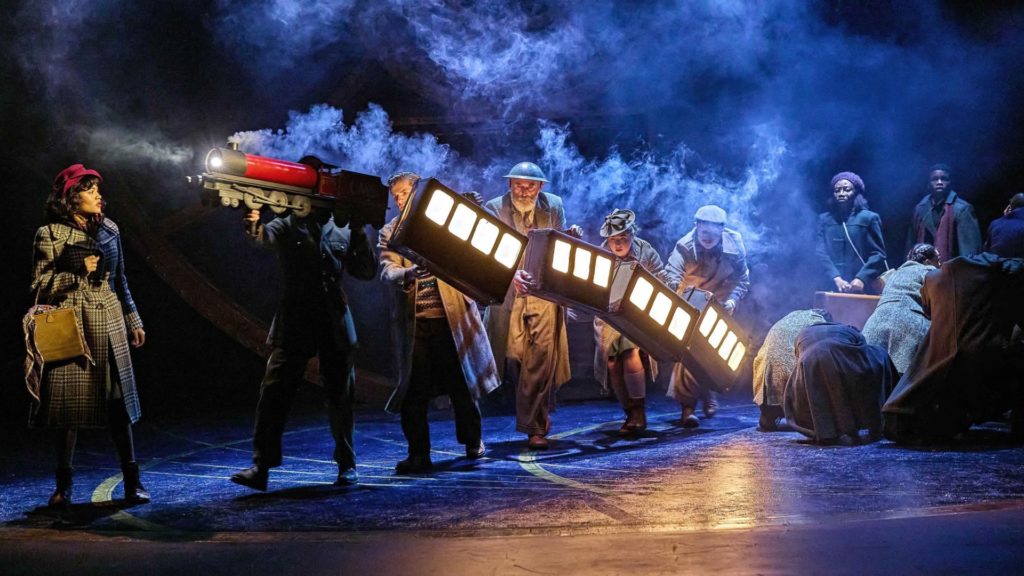
Full steam ahead: The train journey scene in The Lion, The Witch And The Wardrobe, on tour at the Grand Opera House, York
IF you did not head over to Leeds Playhouse between November 18 and January 25 for the most spectacular show of the Yorkshire Christmas season, then you can still venture into Narnia via the wardrobe as Michael Fentiman’s breathtaking production has further magical life, like Aslan, on a long tour.
The narrow Grand Opera House stage is smaller than the Playhouse’s cavernous Quarry Theatre, but much of the grand scale has been retained, except for Katy Stephens’ White Witch no longer rising high above the auditorium in the climax to Act One.
It matters not a jot as that scene still carries its own frightening, shivering beauty amid the flurry of snowflakes in a show replete with magic and illusions by Chris Fisher and wondrous puppetry, designed by Max Humphries and directed by Toby Olie. The wow factor keeps on rising.
Marking the 75th anniversary of C S Lewis’s 1950 novel, and based on the original production by Sally Cookson, this show finds the perfect balance of storytelling and spectacle, delivered by a cast of actor-musicians who are as likely to switch instrument as character as they perform Barnaby Race and Benji Bower’s score rooted in English folk music suffused with the energy of Irish jigs.
Set and costume design by Tom Paris, working from Rae Smith’s original design, are complemented by Jack Knowles’s stellar lighting design and Tom Marshall’s sound design that fills the Grand Opera House auditorium like no other show.

Katy Stephens’ White Witch comes face to face with her nemesis Aslan in The Lion, The Witch And The Wardrobe. Picture: Ellie Kurttz
Pre-show, a pianist in military attire and pith helmet plays favourite tunes of the wartime era, setting the scene for an enchanted story where the Pevensie children will become caught up in a very different battle in Narnia.
Yet the costumes for the Narnian creatures will remind you of the other war the children have left behind: from goggles for Ed Thorpe’s Mr Beaver, to an airman’s flying jacket for Alfie Richards’ Mr Tumnus and a gas mask for Shane Antony-Whiteley’s lupine Maugrin, who moves and fights on all fours with the aid of crutches that propel him around the stage in leaps and bounds.
Typified by Antony-Whiteley’s Maugrin, Shanelle ‘Tali’ Fergus’s choreography is as much physical theatre as ensemble dance and graceful poise for Stephens’ White Witch, all played out on a revolving set that facilitates going into the wardrobe and out the other side into frozen, faraway Narnia, with its signature lamp post atop a piano.
Seen through the eyes of the Pevensie children, evacuated to the avuncular Professor’s Scottish lair, Lewis’s torrid, allegorical tale is told with a sense of wonder as Lucy (Molly Francis, understudying for Kudzai Mangombe), Edmund (Bunmi Osadolor), Susan (Joanna Adaran) and Peter (Jesse Dunbar) “meet new friends, face dangerous foes and learn the lessons of courage, sacrifice and the power of love”. All four deliver terrific performances, with bags of humour and pathos, and room for mistakes and rivalries on a rapid learning curve of empowerment.
Set-pieces deliver time after time, from the journey north on a train, whose individual carriages light up to musical accompaniment as they are carried above heads as the steam hisses, to Aslan miraculously vanishing from his, spoiler alert, resting place. The stage floor lights up to denote the crackling of ice; the huge puppet of Aslan, steered by puppeteers, will rise to his haunches, as impressive as Joey, the horse in War Horse.
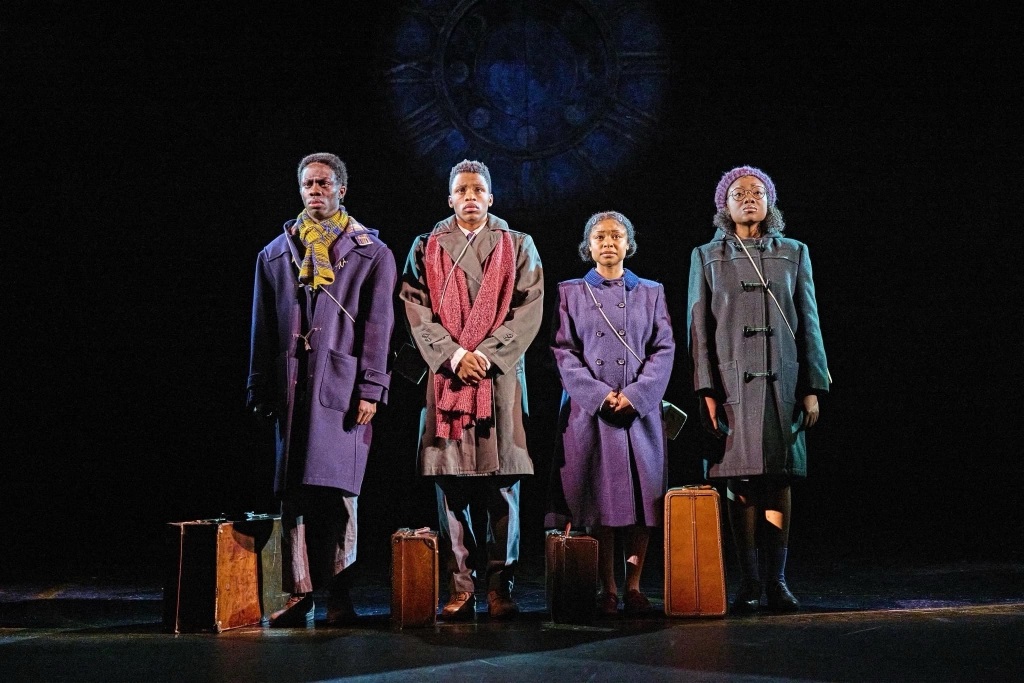
The Pevensie children in The Lion, The Witch And The Wardrobe: Edmund (Bunmi Osadolor), Peter (Jesse Dunbar), Susan (Joanna Adaran) and Lucy (Kudzai Mangombe)
All life is here in Fentiman’s company, from Richards’ deceitful but devastated faun Mr Tumnus to Stanton Wright’s embodiment of Aslan’s noble demeanour (standing alongside the roaring puppet); Thorpe and Anya De Villiers’ bickering Mr and Mrs Beaver to Kraig Thornber’s triple bill of roles as the Professor, Father Christmas and Wise Owl. And yes, a comment is made that this is not the season for Christmas!
Stephens brings all her Royal Shakespeare Company and Shakespeare’s Globe gravitas to the White Witch, putting the vile into evil that made you swear the Grand Opera House had suddenly turned colder on each entry.
Praise too for the work of fight director Jonathan Holby, musical director Ben Goddard and hair and make-up designer Susanna Peretz. If you see the show elsewhere, that praise will extend to aerial director Gwen Hales.
In the words of director Michael Fentiman: “This production celebrates the magic of live theatre. It is a celebration of the possibilities of the collective imagination and the boundless wonders of individual skill.”
How right he is, and what a special, powerful. moving, beautiful production it is. Make sure to rush to the wardrobe: five-star theatre awaits.
The Lion, The Witch And The Wardrobe, Grand Opera House, York, until Saturday 7pm plus 2pm Saturday matinee. Box office: atgtickets.com/york. Also Alhambra Theatre, Bradford, September 23 to 27, 7pm plus 2pm Wednesday and 2.30pm Saturday matinees (box office, 01274 432000 or) and Hull New Theatre, September 30 to October 4, 7pm and 2pm Thursday and Saturday matinees (box office, hulltheatres.co.uk). Age guidance: six upwards.

